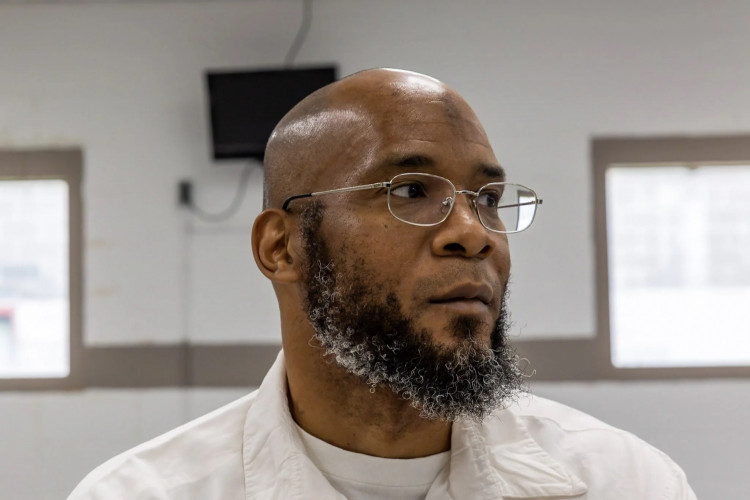As Marcellus Williams approaches his scheduled execution date on September 24, a growing chorus of voices, including those from within the legal system, are raising serious doubts about his guilt. Williams, convicted of the 1998 murder of former St. Louis Post-Dispatch reporter Felicia Gayle, has consistently maintained his innocence. Now, new DNA evidence-unavailable at the time of his trial-casts significant doubt on his conviction, sparking a last-ditch effort to prevent what some argue could be a tragic miscarriage of justice.
The evidence, which was tested in 2016, suggests that Williams is not the person who wielded the knife that killed Gayle. According to the St. Louis Prosecuting Attorney's Office, DNA found on the murder weapon does not match Williams. This revelation has prompted St. Louis Prosecuting Attorney Wesley Bell to file a motion seeking to vacate Williams' conviction and death sentence. "Nothing puts Marcellus Williams at the crime scene," said Tricia Rojo Bushnell, one of Williams' attorneys and the executive director of the Midwest Innocence Project. "No one saw him there, none of the physical evidence puts him there."
Williams' case highlights a fundamental flaw in the justice system- the possibility that an innocent person could be executed. Since 1973, at least 200 people sentenced to death have been exonerated, including four in Missouri, according to the Death Penalty Information Center. With his execution date looming, Williams' case is becoming a focal point for debates over the death penalty and wrongful convictions.
The Missouri Attorney General's Office, led by Andrew Bailey, has been fighting to uphold the conviction. Despite the new DNA evidence, Bailey's office contends that the evidence presented at trial was overwhelming. In June, the Missouri Supreme Court set Williams' execution date, dismissing arguments that the new evidence should halt the execution. However, Bell's motion argues that the DNA evidence "has never been considered by a court," and when combined with other questionable aspects of the case, including the use of unreliable informants, it casts "inexorable doubt on Mr. Williams's conviction and sentence."
Williams was convicted primarily on the testimony of two informants-both of whom had criminal records and potential motives for testifying. Henry Cole, one of the informants, claimed that Williams confessed to the murder while they were incarcerated together. However, Cole's statements were inconsistent, and he later admitted that he was motivated by the $10,000 reward offered by Gayle's family. The other key witness, Williams' former girlfriend Laura Asaro, initially denied knowing anything about the crime but changed her story after being promised that charges against her would be dropped. She also stood to benefit from the reward money.
The case against Williams is further complicated by the fact that none of the forensic evidence from the crime scene-footprints, hair, and fingerprints-ties him to the murder. Even the laptop belonging to Gayle's husband, which was stolen during the crime and later recovered, was traced back to another individual who claimed he received it from Asaro, not Williams.
Despite the mounting evidence suggesting Williams' innocence, Missouri's legal system appears poised to proceed with the execution. Former Governor Eric Greitens had previously halted Williams' execution in 2017, appointing a board to review the new DNA evidence. However, Greitens resigned before the board could reach a conclusion, and current Governor Mike Parson dissolved the board last year, lifting the stay of execution.
The situation has become a race against time. Judge Bruce Hilton of the St. Louis County Circuit Court began hearing testimony on the motion to vacate Williams' conviction on Wednesday. The judge typically would have months to deliberate on such cases, but with the execution date less than five weeks away, time is a luxury Hilton does not have.
This case is the first test of a 2021 Missouri law that allows prosecutors to challenge wrongful convictions. The law has already led to the exoneration of three men, including Christopher Dunn, who spent 34 years in prison for a murder he did not commit. Williams is the first death row inmate to seek relief under this law.
The case has attracted significant attention, with advocates arguing that the state has nothing to gain by executing the wrong person. Joseph Amrine, a former Missouri death row inmate who was exonerated after 17 years, stated, "The state has nothing to gain by killing the wrong person."




